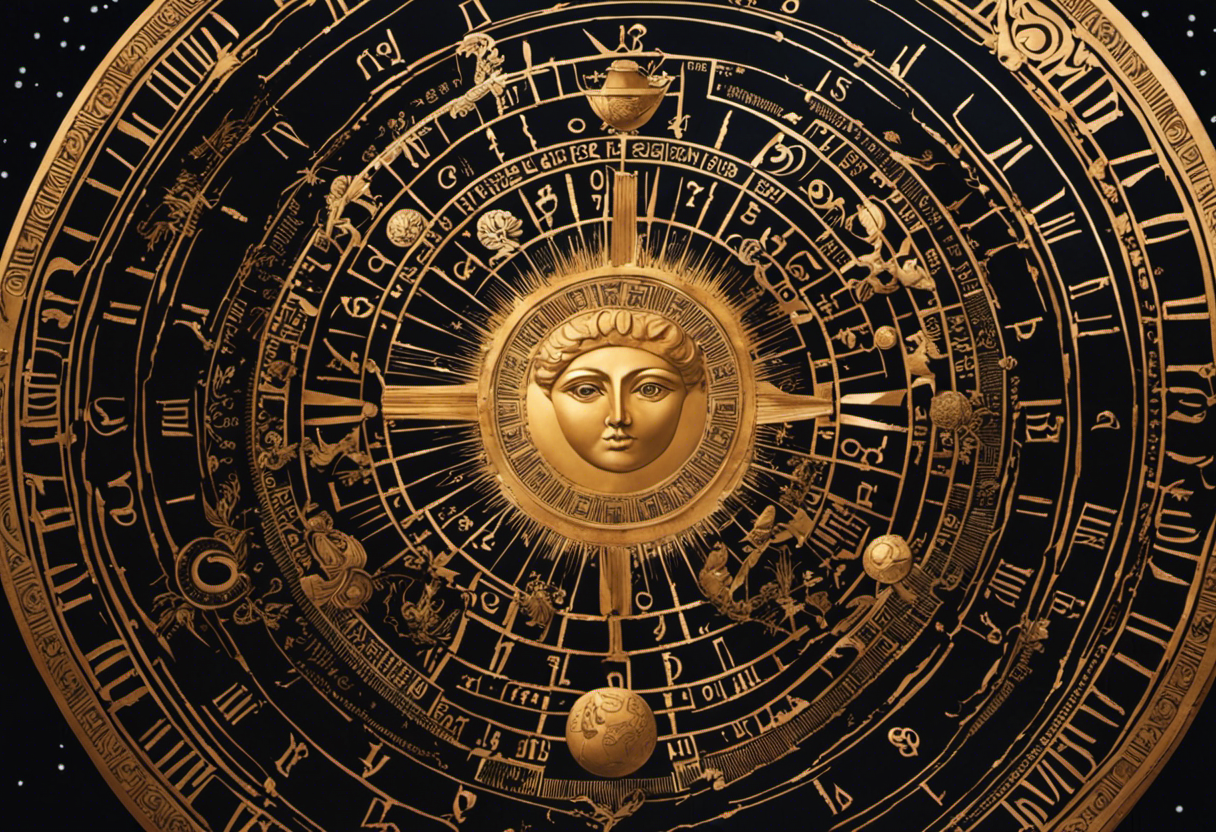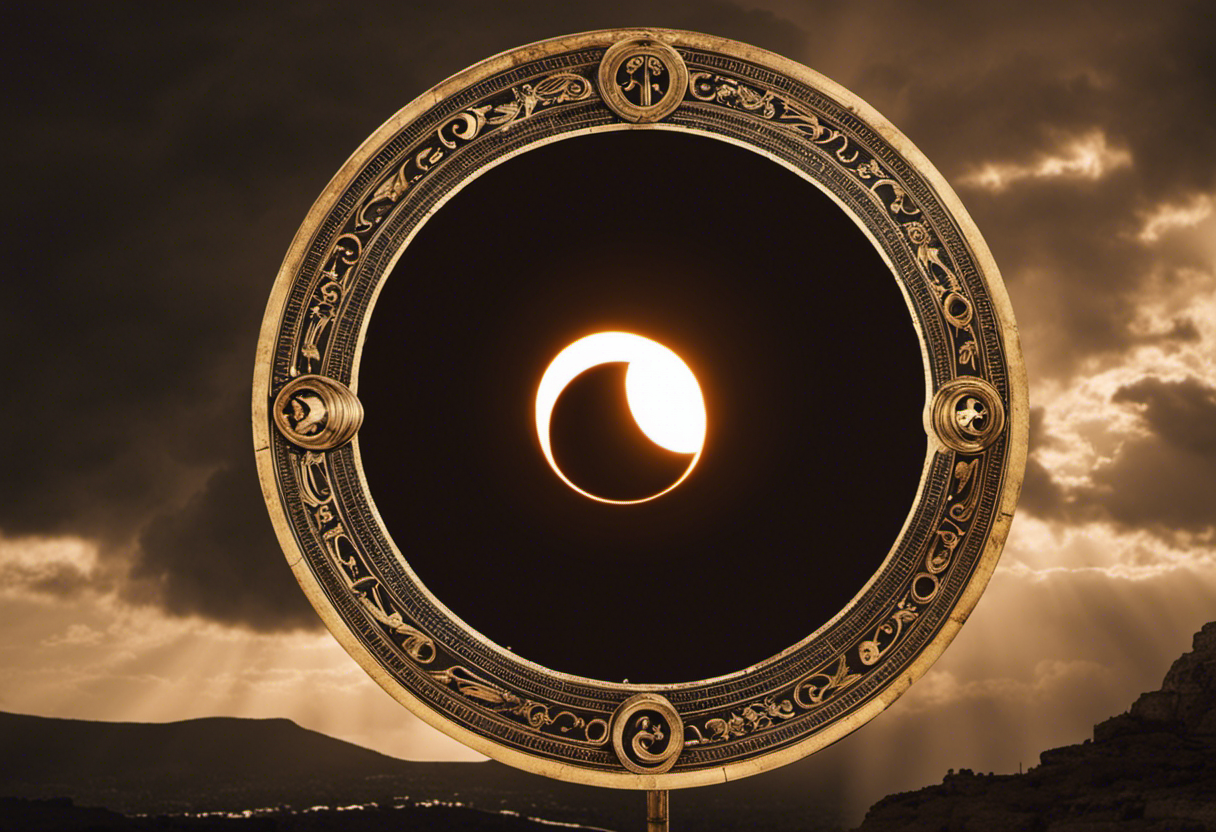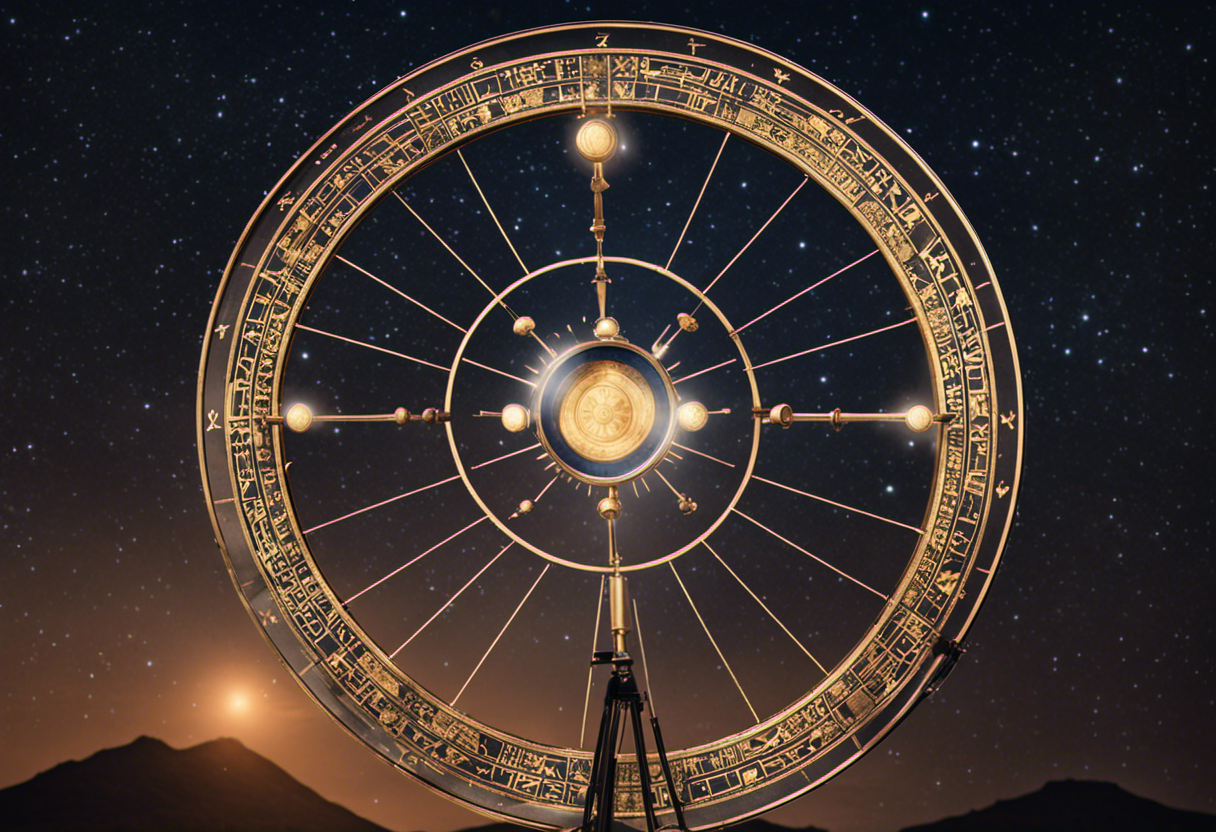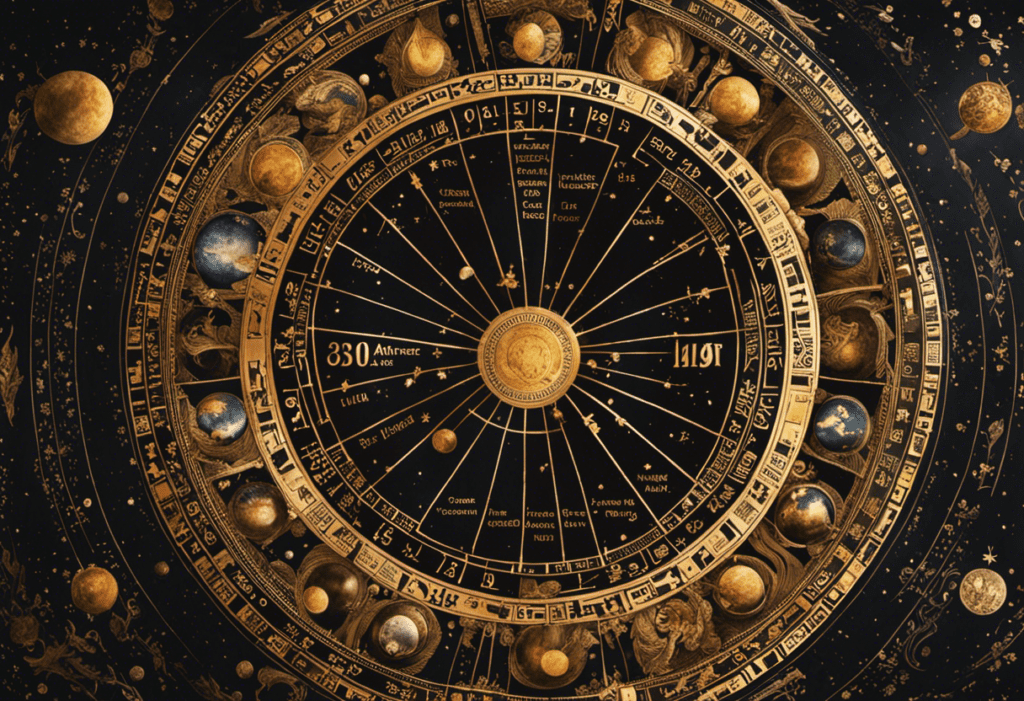Have you ever wondered how the ancient Greeks interpreted the celestial phenomenon of solar and lunar eclipses?
In this article, we delve into the fascinating world of Ancient Greek cosmology and astronomy, exploring their calendar system, myths, and divine interpretations surrounding eclipses.
By examining their astronomical observations and calculations, we uncover the symbolic and scientific significance of these celestial events.
Join us on a journey through time as we unravel the legacy of Ancient Greek astronomy and its influence on modern science.
Key Takeaways
- Ancient Greeks had a deep understanding of celestial bodies and their movements, laying the foundation for future advancements in astronomy.
- The Greek calendar system incorporated lunar and solar cycles but faced challenges in accurately measuring time, resulting in variations and inconsistencies.
- Solar eclipses were rare and highly significant events with spiritual and political implications, while lunar eclipses were seen as signs from the divine and warnings of impending disaster.
- Ancient Greeks explained eclipses through myths and interpretations, viewing them as omens or messages from the gods and using them for divination and prophecy.
Ancient Greek Cosmology and Astronomy


Ancient Greek cosmology and astronomy encompassed a rich and intricate understanding of celestial bodies and their movements. The ancient Greeks had a keen interest in observing and studying the stars, planets, and other celestial phenomena. They believed that the movements of these celestial bodies could provide insights into the nature of the universe and the lives of individuals.
One significant aspect of ancient Greek cosmology and astronomy was the development of the zodiac signs. The zodiac signs were a division of the celestial sphere into twelve equal parts, each associated with a particular constellation. These signs were believed to represent different personality traits and characterizations of individuals based on the position of the sun at the time of their birth.
Ancient Greek philosophers played a vital role in shaping the field of astronomy. Philosophers such as Thales, Pythagoras, and Aristotle contributed to the understanding of celestial bodies and their movements. They developed theories and models to explain the motions of the stars and planets, laying the foundation for future advancements in astronomy.
The Ancient Greek Calendar System


The Ancient Greek calendar system played a crucial role in determining the occurrence of solar and lunar eclipses. Understanding the differences between lunar and solar eclipses was essential for the Greeks in accurately predicting and recording celestial events.
The Greek calendar system, although not as precise as modern calendars, was still able to provide a relatively accurate framework for tracking time and celestial phenomena.
Lunar Vs Solar Eclipses
Lunar and solar eclipses were frequently observed and recorded within the ancient Greek calendar system. The ancient Greeks held strong beliefs about celestial phenomena, believing that eclipses were signs from the gods and held deep meaning.
Here are some key differences between lunar and solar eclipses in the ancient Greek calendar:
- Lunar Eclipses:
- Occurred when the Earth passed between the Moon and the Sun, casting a shadow on the Moon.
- Considered a more common event than solar eclipses.
- Were seen as less significant in terms of predicting future events or omens.
- Solar Eclipses:
- Occurred when the Moon passed between the Earth and the Sun, blocking the Sun’s light.
- Considered rare and highly significant events.
- Believed to have spiritual and political implications, often interpreted as messages from the gods.
The ancient Greeks carefully observed and recorded these celestial events, interpreting them as important signs with deep cultural and religious significance.
Greek Calendar Accuracy
One interesting aspect of the Greek calendar system is that it incorporated both lunar and solar cycles, allowing for a more accurate measurement of time. The Greeks observed that the lunar cycle, which consists of approximately 29.5 days, did not perfectly align with the solar year, which is about 365.25 days.
To address this discrepancy, the Greeks made adjustments to their calendar system. They introduced intercalary months, which were added periodically to synchronize the lunar and solar cycles. However, despite these efforts, the Greek calendar system still had limitations and inconsistencies.
The intercalary months were not consistently added, resulting in variations in the length of the Greek year. Additionally, the Greeks did not account for leap years, further contributing to inaccuracies in their calendar system.
These limitations highlight the challenges faced by ancient societies in accurately measuring time.
Solar Eclipses: Myths and Interpretations


Solar eclipses have long fascinated ancient Greek astronomers and philosophers, who sought to explain these celestial events through their own cultural lens. These explanations often involved mythical stories and interpretations that reflected the significance of solar eclipses in their society.
Ancient Greek Explanations
The Ancient Greek’s explanations for solar eclipses were rooted in their myths and interpretations of celestial events. According to their ancient Greek beliefs, solar eclipses were seen as significant omens or messages from the gods. They believed that during an eclipse, a battle between light and darkness was taking place, and it was a sign of divine intervention or displeasure.
There were several popular interpretations regarding the cause of solar eclipses, including the belief that a celestial being or god was temporarily blocking the sun’s light. Another interpretation suggested that the sun was being devoured by a monstrous creature. These explanations reflect the ancient Greeks’ attempt to make sense of the celestial events they observed, blending their mythical beliefs with their curiosity about the natural world.
- The gods’ intervention in celestial events
- The battle between light and darkness
- The temporary blockage of the sun’s light
Cultural Significance and Symbolism
Solar eclipses held a deep cultural significance for the ancient Greeks and were interpreted in various ways. These celestial events were seen as omens and were believed to have the power to influence human affairs. The Greeks had a rich tradition of interpreting solar eclipses based on their cultural beliefs and ancient traditions.
In Greek mythology, solar eclipses were often associated with the gods and were seen as messages or signs from the divine. They were believed to be a reflection of the gods’ displeasure or as a warning of impending disaster.
The ancient Greeks also believed that solar eclipses could be used for divination and prophecy, with astrologers and priests interpreting the alignment of the celestial bodies to predict future events.
These cultural beliefs and interpretations of solar eclipses played a significant role in shaping the ancient Greek worldview and their understanding of the cosmos.
Lunar Eclipses: Symbolism and Significance


During lunar eclipses, the moon passes through the Earth’s shadow, resulting in a mesmerizing celestial event. In ancient Greece, lunar eclipses held great symbolism and significance. Here are some historical accounts and interpretations of lunar eclipses in ancient Greece:
- Omens of Change: Ancient Greeks believed that lunar eclipses were omens of change and upheaval. They saw these events as messages from the gods, signaling important events or shifts in power. Lunar eclipses were often associated with political or social transformations.
- Divine Displeasure: Lunar eclipses were also seen as signs of divine displeasure. Greeks believed that when the moon was eclipsed, it was a manifestation of the gods’ anger or dissatisfaction with human behavior. These eclipses were seen as warnings or punishments from the gods.
- Harbingers of War: Lunar eclipses were sometimes interpreted as harbingers of war. Ancient Greek historians recorded instances where lunar eclipses preceded major military conflicts. The Greeks believed that these eclipses were foretelling of imminent battles or wars.
Ancient Greeks closely observed and interpreted lunar eclipses, attributing profound symbolism and significance to these celestial events. They saw them as powerful messages from the gods, offering insights into the future and shaping their understanding of the world around them.
Astronomical Observations and Calculations in Ancient Greece


Astronomers in ancient Greece made meticulous observations and calculations to understand the celestial phenomena occurring in the night sky. To aid their studies, they developed a variety of astronomical instruments. One such instrument was the astrolabe, which was used for measuring the positions of stars and planets. The Greeks also used the armillary sphere, a complex device consisting of rings representing celestial circles, to determine the positions of celestial objects. These instruments allowed ancient Greek astronomers to make accurate observations and collect data that formed the basis of their calculations.
Among the notable ancient Greek astronomers were Hipparchus and Ptolemy. Hipparchus is credited with developing the concept of the magnitude scale to measure the brightness of stars. He also made significant contributions to trigonometry, which he used to calculate the positions of celestial objects.
Ptolemy, on the other hand, developed a comprehensive geocentric model of the universe known as the Ptolemaic system. His work, ‘The Almagest,’ was a compilation of astronomical knowledge, including observations, calculations, and theories of celestial motion.
The ancient Greek astronomers’ contributions laid the foundation for modern astronomy. Their meticulous observations and calculations, combined with their innovative use of instruments, paved the way for our understanding of the cosmos.
Eclipses and the Greek Pantheon: Divine Interpretations


Many ancient Greek scholars believed that eclipses were significant celestial events, and both the gods and goddesses of the Greek pantheon played an important role in their divine interpretations. The Greeks saw eclipses as celestial omens, believed to be messages from the gods about the future or warnings of impending disasters. The divine interpretations of eclipses were influenced by the characteristics and domains of the deities in Greek mythology.
Here are some examples of how the Greek pantheon was associated with eclipses:
- Apollo, the god of the sun, was often linked to solar eclipses. The darkening of the sun during an eclipse was seen as a manifestation of Apollo’s power.
- Artemis, the goddess of the moon, was associated with lunar eclipses. The reddish tint that the moon takes on during an eclipse was believed to be a reflection of Artemis’ influence.
- Zeus, the king of the gods, was seen as the ultimate authority over celestial phenomena. Eclipses were often interpreted as signs of Zeus’ displeasure or as indicators of important events in mortal affairs.
The ancient Greeks saw eclipses as events of great significance, not only in astronomical terms but also in their religious and cultural beliefs. The divine interpretations of eclipses added another layer of meaning to these celestial occurrences and shaped the way the Greeks understood and interpreted the world around them.
Legacy of Ancient Greek Astronomy: Influence on Modern Science


The legacy of ancient Greek astronomy continues to have a profound influence on modern science through its contributions to our understanding of celestial phenomena. The ancient Greeks made significant advancements in the field of astronomy, laying the foundation for the scientific study of the universe. Their observations, measurements, and mathematical calculations have had a lasting impact on our understanding of the cosmos.
One area in which the influence of ancient Greek astronomy can be seen is in modern technology. The development of telescopes, for example, has allowed scientists to observe and study celestial objects in great detail. The principles of optics and the understanding of light that were developed by the ancient Greeks are fundamental to the design and function of telescopes. Without the knowledge and insights gained by ancient Greek astronomers, our ability to explore the universe would be severely limited.
Furthermore, the ancient Greeks’ contributions to astronomy have had a profound impact on scientific advancements. Their understanding of the motion of celestial bodies, such as the Earth’s rotation and the orbits of the planets, laid the groundwork for the development of modern theories of gravity and planetary motion. The mathematical models and calculations developed by ancient Greek astronomers have been refined and expanded upon over the centuries, leading to our current understanding of the laws that govern the universe.
Conclusion
In conclusion, the ancient Greeks had a deep understanding of cosmology and astronomy, which is evident in their calendar system and interpretations of solar and lunar eclipses.
Their observations and calculations paved the way for modern scientific understanding of these celestial events.
The influence of ancient Greek astronomy can still be seen in our current understanding of the universe.
Like a guiding star in the night sky, their knowledge continues to illuminate the path of scientific exploration.




